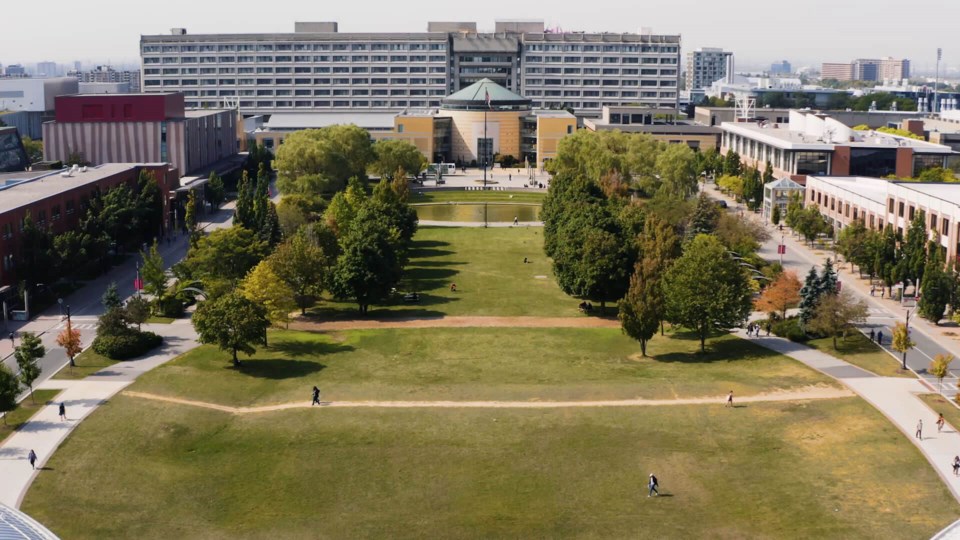York University assistant professor Amanda De Lisio wanted to help a group of Asian women with a precarious status that were in challenging positions.
She kept track of the Town of Newmarket personal wellness establishment bylaw, which put new rules and regulations on local alternative massage businesses to address alleged sex work at some of them. Now, alternative massage workers have to prove they were educated at an accredited post-secondary institution or have alternative education.
With advocacy groups professing workers often learn on the job, De Lisio set out to make a free seminar series with her students that could give the workers the accreditation they needed under Newmarket’s bylaw.
“I just want to make sure that people who are trying to secure their livelihood have an opportunity to do that, and if I can provide accreditation — because that’s a new hurdle for them — then I’ll do what I can,” she said.
The program ran from September to Nov. 1, with 75 individuals taking the 20-hour seminar series. The town-approved curriculum included kinesiology and health, body structure, physiology with a chiropractor, disease and dysfunction with an acupuncturist, and safety and legal.
The seminars came as the town started enforcing the bylaw and fining non-compliant businesses. The town has defended the bylaw as a way to address complaints about businesses violating federal laws around sex work, but Asian advocates have called it discriminatory to Asian businesses and workers who are not all necessarily doing sex work. The issue has now gone to hearing as some local businesses are fighting to get licences the town has denied.
De Lisio said she was inspired to take this on after hearing from workers and advocates at an event York University hosted about the issue. She said it was a lengthy process of gathering materials and translating them with the help of a Canadian Women's Foundation Grant. There was also a back-and-forth with the town to ensure the curriculum worked for the bylaw.
But the initiative also became a way to exchange new ideas, and she said her more regular students also got a lot out of the process.
“I am an untenured faculty member here. I don’t have a lot of time to do volunteer projects. But this was important to me,” she said. “I saw how important it was to the students."
Asked about the town’s role in developing the series, director of legislative services Lisa Lyons said the municipality could not comment due to the ongoing appeal hearings regarding denied licences. The York University series was cited during a hearing last week, with the lawyer representing businesses denied licences saying the seminars meant that education was no longer a problem.
Although many of the workers in question now have some accreditation, licensing and fines remain an ongoing issue for many of them, De Lisio said. The town has said it has evidence of sex work at several businesses and has fined any still operating without approvals.
De Lisio said she is unsure if the seminars will be offered again, depending on whether the town wants to make the accreditation available in the future. But she added it could be a way to offer a classroom experience to those that might otherwise not have access to university.
Asian and migrant sex worker support network Butterfly founder Ellene Lam said the seminar came about due to resistance from the workers. She said although they want the bylaw removed, it was a positive opportunity for them to get access to university education, which can be an issue due to the language barriers.
“They can finally overcome the challenge,” she said, adding that entering an educational institution like this “is really meaningful for them.”
De Lisio said Butterfly was critical to the seminars to help with translation, assembling the workers, sharing their knowledge and experiences, and connecting with Asian health practitioners.
“If these were trafficked victims — as a fear often touted by the town — their knowledge and network would be leveraged to resist that,” she said. "But it is clear to me now that this bylaw — with its fines, fees, and enforcement intimidation tactics — is their biggest occupation hazard. The workers taught me/us so much about non-Western approaches to the body and health and wellness that it was laughable that accreditation was required by me. "

